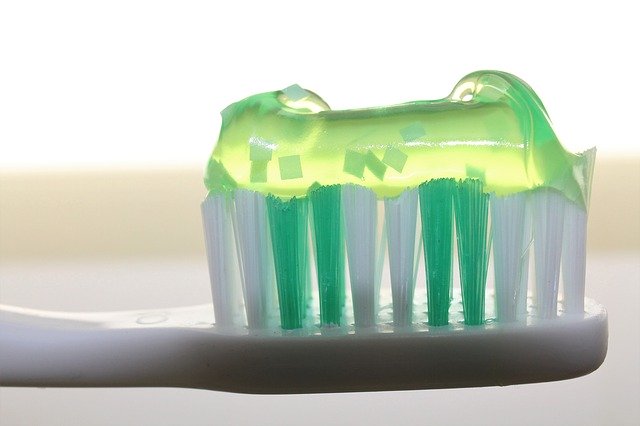
by Ashley Bentley, DVM
Xylitol is a sugar alcohol that’s becoming increasing popular as a “natural” alternative sweetener. (Note: sugar alcohols, despite the name, do not contain ethanol.) It is commonly found in products labeled as low sugar or sugar-free, such as candy and chewing gum. Unfortunately, xylitol is toxic to dogs.
Ingestion of xylitol-containing gum is a fairly common reason for a dog to present to our emergency service, but the sweetener can also be found in candies, baked goods, and even peanut butter. It’s available in granular form in large bags at most health stores.
Xylitol can also be found in liquid medications, toothpastes & mouthwashes, lotions, and deodorants. It’s important to keep products containing xylitol out of reach of canine housemates. Dogs are, for example, great at finding sugarless gum hidden in a purse that’s placed on the floor!

If you brush your dog’s teeth, be sure to only use toothpaste made for dogs. Human toothpaste may contain xylitol.
Xylitol toxicity
Even a small amount of xylitol can be very, very toxic to a dog. A dog’s body responds to ingestion of xylitol by triggering a massive insulin release. This can result in life-threatening hypoglycemia (extreme drop in blood sugar) as soon as 30 minutes after ingestion. Owners may notice signs including vomiting, lethargy/depressed mentation, and even seizures. Still small but slightly higher doses of xylitol can cause severe, potentially lethal liver failure within 24-48 hour of ingestion.
If you think your dog has ingested xylitol, it’s imperative that you seek veterinary attention immediately. Dogs with hypoglycemia due to xylitol ingestion need to be hospitalized for IV fluids, sugar (dextrose) supplementation, and monitoring of blood sugars.
Dogs that develop liver failure from xylitol will need to be hospitalized for a longer period of time (several days) to receive fluids and other liver supportive medications/infusions. A dog that develops only hypoglycemia will most often fully recover but those that progress to liver failure have a much poorer prognosis.
Xylitol alternatives
Other sugar alcohol alternative sweeteners, such as sorbitol or erythritol, cause much milder problems in dogs–mainly GI upset. Xylitol toxicity is not known to cause problems in cats or any other domestic species.
If you have products containing xylitol in your household, take every precaution to keep them out of reach of your dog(s). Some dog owners may get peace of mind by avoiding xylitol altogether and using other alternative sweeteners instead. Finally, remember that Ann Arbor Animal Hospital is always here to help!
For more information, see the FDA’s article on xylitol and dogs.
Recent Posts
About Us
Ann Arbor Animal Hospital is a locally-owned animal hospital operating for over 90 years in Ann Arbor, MI.
